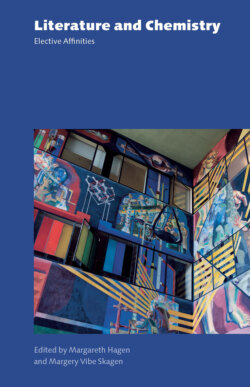Читать книгу Literature and Chemistry - Группа авторов - Страница 22
На сайте Литреса книга снята с продажи.
OTHER SENSES
ОглавлениеThe categories of the Five Senses are, of course, a shorthand and a myth. A cursory glance at the literature suggests that there is a lively debate on what precisely constitutes a ‘sense’ in neurological terms, and indeed on how many senses there might be, human, animal, or vegetal: the answer seems to be anything between the traditional five and twenty-one.12 One of the most widely acknowledged, and most biologically and evolutionarily essential, of the senses beyond the standard five is known as nociception, the sense of pain. In closing, I would like to suggest that Levi’s chemical sensorium is completed and fulfilled in his writing – made sense of, we might say – through his extraordinary attention to nociception, to the physical and moral senses of pain, and in particular to the need to feel the “pain of others”, as Susan Sontag phrased it (Sontag).
“Retirement Fund” already staged as one of its mini-narratives and vicarious sensations the experience of an Italian-American immigrant being beaten up American racists: literally feeling the pain of others. But pain comes not only from physical blows in Levi; it is also distinctly linked to some of the sensory processes we have touched on above. Back in If This is a Man, when Levi describes his first dream, of not being listened to by his friends and especially by his sister when he tries to tell them about his ordeal, he veers from the intense, physical (sensuous) pleasure of telling them his story, to a sudden and pure form of pain:
It is an intense pleasure, physical, inexpressible, to be at home, among friendly people, and to have so many things to recount: but I cannot help noticing that my listeners do not follow me. In fact, they are completely indifferent: they speak confusedly of other things amongst themselves, as if I was not there. My sister looks at me, gets up and goes away without saying a word.
A desolating grief is now born in me, like certain barely remembered pains from one’s early infancy. It is is pain in its pure state … (If This is a Man/ The Truce, p. 66; emphasis added)
This turn from pleasure to pain, of pleasure into pain, gets close to the ethical heart of Levi’s world and to the ethical endpoint of his sensory explorations. “Against Pain” is the title of one of his short essays in Other People’s Trades (pp. 182-4), a sort of Epicurean universal declaration that our only duty in acting in the world is the avoidance of pain, but especially “the pain of others”. We are closer here to Jeremy Bentham’s famous declaration on the empathy and the suffering of animals: “The question is not, Can they reason? nor, Can they talk? but, Can they suffer?” (Bentham, 17.6).13 In another science-fiction story, “Versamina” (Sixth Day 45-54), Levi imagines a chemical that converts pleasure into pain and vice versa, and the moral havoc that ensues. He ends by quoting Western literature’s most terrible wreakers of havoc, inversion, and moral chaos, Shakespeare’s witches in Macbeth: “Fair is foul and foul is fair / hover through the fog and filthy air” (Shakespeare, Sixth Day, p. 54).
If Levi began his chemical explorations with Walden inversions, it is perhaps not too fanciful to hear an echo of the chirality and transformations that fascinated him at a molecular level back in the 1940s, in the chemical-ethical perceptions and inversions that he brought together through his heightened attention to the workings of the senses.
